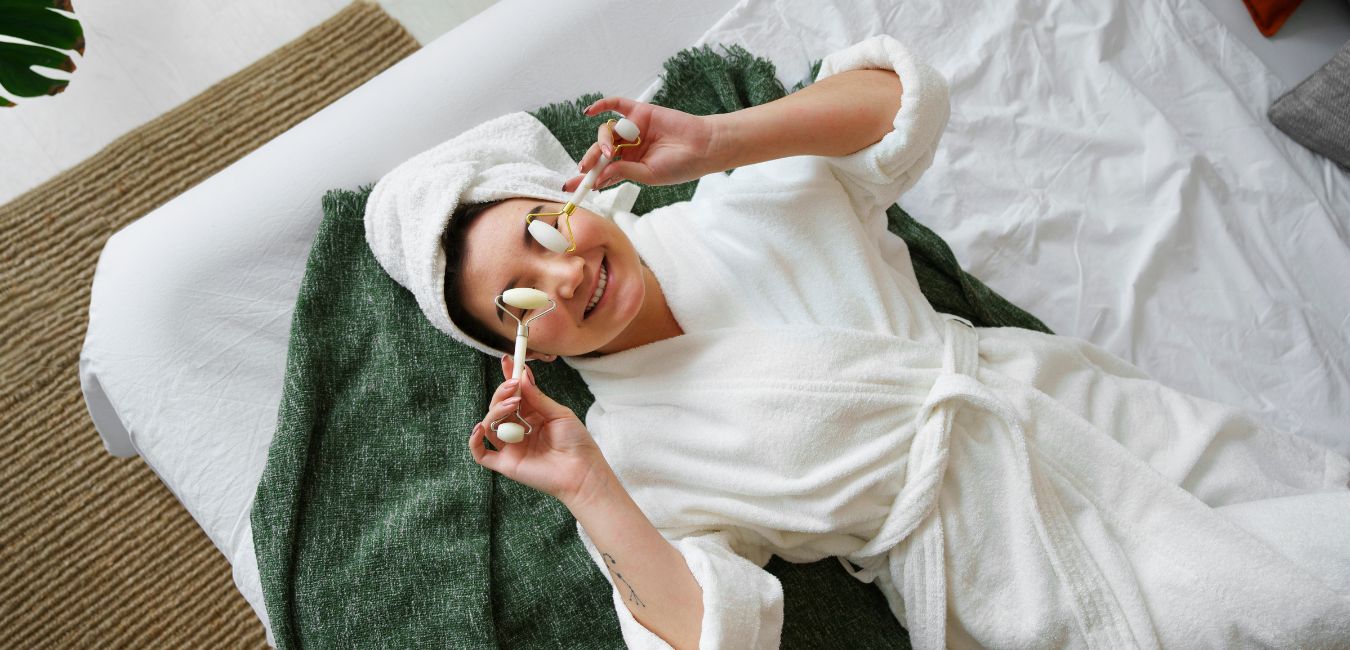
Feel Better This Blue Monday: How Chinese Medicine & Acupuncture Can Help
Heard of Blue Monday? It’s supposed to fall on the 20th of January and is reportedly the saddest day of the year. With Christmas in the rear-view mirror and several months until Spring, Blue Monday is reportedly the day when our moods are at their lowest.
But is it really true? Is there a Monday in January when we’re all, on average, in our most depressed state? And, if so, is there anything we can do to pick up our spirits?
Is Blue Monday Real?
Yes and no. Blue Monday was originally devised by psychologist Dr Cliff Arnall in 2004, who analysed a collection of data to determine the bleakest day of the year. He wasn’t doing it purely out for altruistic purposes. His objective was to find the best day for travel companies to sell holidays. Thus, Blue Monday was born.
Despite the objective, there really is something to the world’s most depressing holiday. Dr Arnall looked at several variables, including weather, debt, monthly salary, time since Christmas, time since failed quit attempt, low motivational levels, and the need to take action when deciding upon the date.
Whether Bue Monday really is the most depressing day is up for debate. What’s true, however, is that our moods do dip during January. It’s cold and dark, we’ve spent all our money, and there’s nothing to immediately look forward to. Little wonder Seasonal Affective Disorder (SAD) peaks in January.

The Role of Chinese Medicine in Wellness
People experiencing the winter blues might notice symptoms of low energy, stress, lack of motivation, and more. It’s hard to see the point in doing anything. Worse, the lack of motivation only compounds the problem.
So, what’s the solution?
Traditional Chinese Medicine (TCM) is an ancient practice developed to find harmony between the body and mind. When these two parts become unbalanced, our mood begins to shift. We start to feel dysregulated as our motivation dips and mental health takes damage.
Only by correcting this imbalance can we fix the problem. TCM uses several practices, including acupuncture and herbal treatments, to alleviate our lower mood. These practices work on the energy flow, or qi, within the body, ensuring it flows freely. Alongside the harmonious circulation of our blood, it’s the secret to helping the mind find peace and the body balance.
The Role of Chinese Medicine in Wellness
People experiencing the winter blues might notice symptoms of low energy, stress, lack of motivation, and more. It’s hard to see the point in doing anything. Worse, the lack of motivation only compounds the problem.
So, what’s the solution?
Traditional Chinese Medicine (TCM) is an ancient practice developed to find harmony between the body and mind. When these two parts become unbalanced, our mood begins to shift. We start to feel dysregulated as our motivation dips and mental health takes damage.
Only by correcting this imbalance can we fix the problem. TCM uses several practices, including acupuncture and herbal treatments, to alleviate our lower mood. These practices work on the energy flow, or qi, within the body, ensuring it flows freely. Alongside the harmonious circulation of our blood, it’s the secret to helping the mind find peace and the body balance.

Quick Blue Monday Tips

Sounds appealing, right? Who doesn’t want to feel upbeat during the bleakest month? Chinese medicine offers an effective treatment for the blues. Just follow these tips to integrate the practice into your life:
1. Transform Blue Monday into Brew Monday
Blue Monday doesn’t have to be set in stone. Simply drinking Chinese tea can have immediate effects, lifting your mood. Some of these teas are well-known. Chamomile is famous for calming your body and mind, letting you drift off to sleep. However, several other ingredients offer relaxing and mood-lifting properties.
You can get Prescription Herbal Tea from GinSen’s store. Speak to our consultants to receive a specially formulated blend.
2. Breathing Exercises for Instant Relaxation
Breathing is the simplest method to feeling better. Take long, deep breaths to calm the body and mind. Even just three long deep breaths, spending 4 seconds on the inhale, 7 seconds holding, and 8 seconds on the exhale. Trust us – it works wonders.
3. Self-Acupressure Techniques for Stress Relief
Acupuncture is renowned for its efficacy in treating everything from chronic pain to addiction. It even lifts your spirits. According to a 2024 study, patients who were given acupuncture saw changes in their mood. It’s believed that alterations in brain function cause the changes – although the exact mechanism of action is unknown.
A systematic review confirms the findings. After just four weeks of treatment, acupuncture is much more effective than conventional pharmacology, with fewer side effects and adverse reactions.
You can achieve similar effects by placing pressure on the same locations where the needles are inserted. It’s called self-acupressure. The Yintang point (or the “Hall of Impression), located between the eyebrows, and the He Gu Point (or the “Joining Valley”), located between the thumb and index finger, are especially effective in relieving stress.
4. Stretching and Gentle Movement
Just having a good stretch can help. Get up from your desk, practice some basic stretches to get the blood pumping, and relax. It’s easy to carry stress and anxiety in our bodies. Stretching and gentle movements help relieve this buildup of emotions.
5. A Better Way Forward
Blue Monday doesn’t have to be depressing. Through Chinese medicine and other exercises, you can alleviate your symptoms and enjoy a happier January. With regular acupuncture sessions, you’re guaranteed to improve your overall wellbeing and resilience. Are you ready to give it a go?

For more information about Chinese Medicine, book your free consultation with our Chinese Medicine experts today
* These statements have not been evaluated by the Food and Drug Administration. This information is not intended to diagnose, treat, cure, or prevent any disease. We can’t guarantee the treatment result, as the symptoms of conditions are unpredictable and vary greatly from person to person. The treatment length and recovery time also varies for individual. Please visit our clinics website: GinSen where a specialists will discuss your care and provide a consultation, and the treatment will be designed to meet your individual needs.





